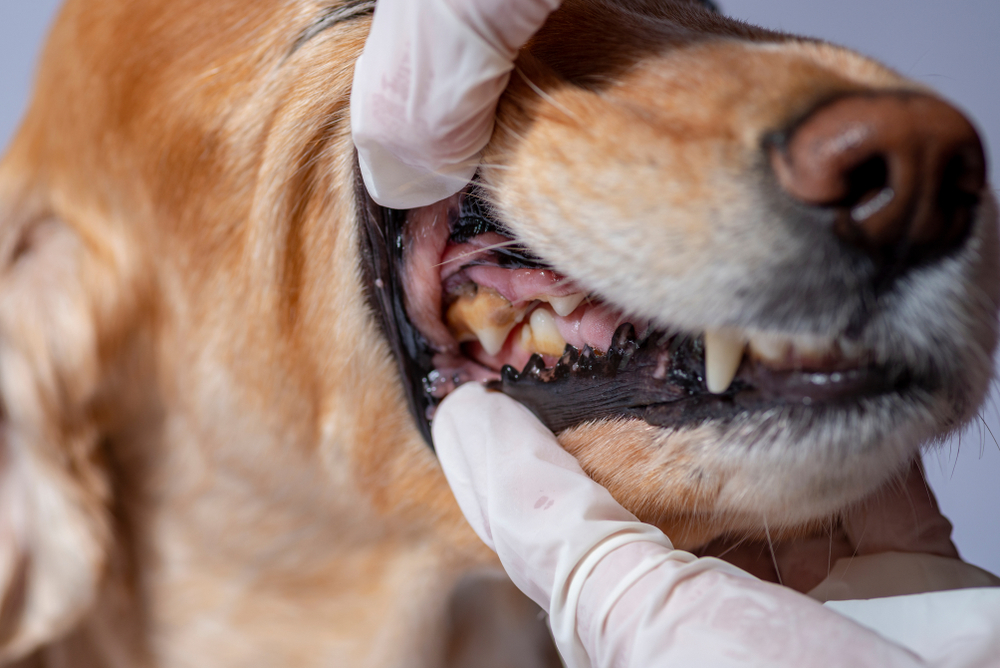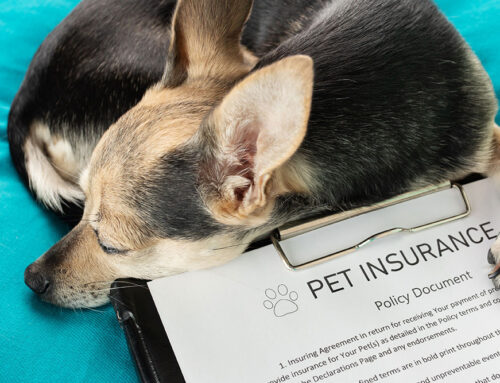Did you know that dental disease is the most commonly diagnosed problem in pets? Most pets have early disease signs by 3 years of age, and their disease will continue to progress if left untreated. Similar to humans, regular dental care, which involves a combination of home care, regular dental exams, and professional anesthetized dental cleanings and evaluations, can keep your mouth healthy. Because dental health is important for your pet’s overall wellbeing—and because February is National Pet Dental Health Month—the Star of Texas Veterinary Hospital team is taking this opportunity to share the facts about pet dental health.
Why pet dental health is important
If you’ve ever had a toothache, you know that oral pain can be excruciating and debilitating. For pets with untreated dental disease, this pain is a daily reality. Imagine every bite being painful, despite food being your favorite thing—how would that affect your quality of life? Pets who deal with daily dental pain suffer constantly, but regular dental health care can prevent or alleviate this pain and improve their quality of life. Pain is also closely related to stress and can change behaviors in your previously happy-go-lucky pet.
In addition to causing pain, harmful oral bacteria can spread dangerous infections throughout your pet’s body. When dental disease becomes severe and bacteria proliferate, they can invade deep into tissues, enter the bloodstream, and from there, seriously damage the heart, lungs, liver, or kidneys, resulting in permanent organ dysfunction and a shortened life. These bacteria are also the cause of bad breath, and you may choose to spend less time with your pet and degrade your bond.
The pet dental disease process
Dental disease starts with sticky plaque that builds up on teeth after eating, which attracts bacteria that normally live in the mouth. Over time, plaque hardens and becomes tartar, which cannot be removed without a professional cleaning. Tartar and bacteria irritate the gums and cause redness or bleeding, and eventually push the gums away from the teeth, allowing bacteria into the tissues below. Gum tissue infection erodes the jaw bones and tooth attachments and causes root abscesses, loose teeth, and pain.

Pet dental disease signs
Pets with dental disease may show the following signs, depending on severity:
- Bad breath
- Red or bleeding gums
- Drooling
- Dropping food or chewing on one side
- Jaw chattering in cats
- Yellow or brown buildup on teeth
- Eating less or only eating soft food
At-home pet dental care
Dental disease is preventable if you can remove the bacteria-attracting plaque before it hardens into tartar, which takes only a few days. Daily toothbrushing removes plaque most effectively, and should be a part of your daily routine—when you brush your own teeth, brush your pet’s, too. The key to successful toothbrushing is a slow, positive introduction, although some pets may never accept brushing, despite your best efforts. For these pets, use dental products, including treats, chews, diets, rinses, water additives, wipes, gels, or sprays, that the Veterinary Oral Health Council (VOHC) has approved as safe and effective.
Professional pet dental care
If your pet already has significant tartar buildup, or their gums are red and swollen, brushing will not be effective—and may be painful—until their current disease is adequately treated. Your veterinary team can perform a dental cleaning and evaluation on your pet while they are anesthetized, which is necessary to reduce stress, prevent pain from sharp dental instruments, and facilitate dental X-rays to assess the full disease extent. During a cleaning, the veterinary team will remove all plaque and tartar, examine and document each tooth’s health, and remove diseased teeth. A veterinary dentist can perform specialized treatments to save larger teeth, such as a root canal, but this treatment is not common for most companion pets. After your pet heals from their dental work, their mouth will be a clean slate for you to start a home-care regimen to prevent disease progression. We recommend visiting the veterinarian at least once per year to evaluate dental health and determine when additional treatments are required.
Committing to a consistent dental health home-care routine is the best way to keep your pet’s mouth healthy, but you’ll also need help from the Star of Texas Veterinary Hospital team. Call us to schedule your pet’s next dental examination and professional dental cleaning, or if you need help establishing the best home-care regimen for your pet.






